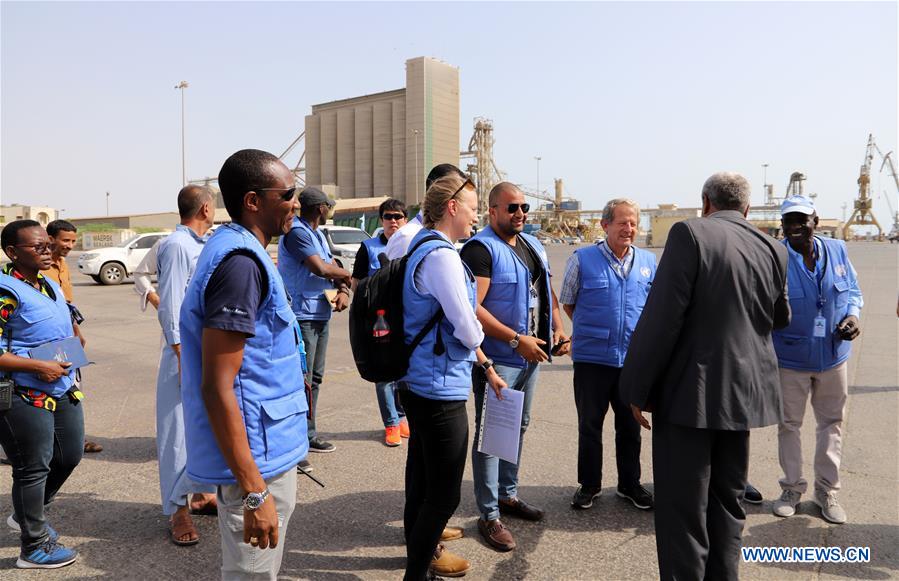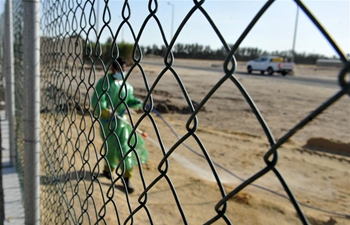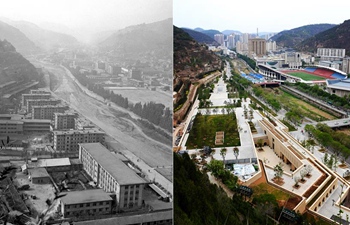
UN team members arrive at the Hodeidah port for a press conference in Hodeidah, Yemen, on May 14, 2019. The UN monitoring mission in Yemen on Tuesday welcomed the Houthi rebels' handover of the security of Hodeidah ports to the coast guards. (Xinhua)
UNITED NATIONS, May 14 (Xinhua) -- The chairman of the UN demilitarization panel visited Yemen's Red Sea ports on Tuesday, praising the security handover from rebels to the coast guard while the UN special envoy's office discussed economic implementation of the Hodeidah Agreement, a UN spokesman said.
The fast-moving developments followed more than five months of practically glacial progress in steps to implement provisions of the December 2018 Stockholm Agreement on Hodeidah, the major Red Sea port. The two minor ports involved are Ras Isa and Saleef.
"United Nations teams have been monitoring this redeployment, which has been executed, partly as agreed by the Yemeni parties in the concept of phase 1," said Farhan Haq, deputy spokesman for UN Secretary-General Antonio Guterres, at a regular briefing for correspondents.
Lt. Gen. Michael Lollesgaard, chair of the Redeployment Coordination Committee, welcomed the handing over of the security of the ports to the coast guard and the efforts to remove all military manifestations from the facilities, Haq said, referring to unexploded ordinance and de-mining.
There is still a lot of work to be done on the removal of the manifestations, but cooperation has been very good, Lollesgaard said in a Note to Correspondents from Hodeidah and released here.
The Hodeidah accord calls for the combatants to withdraw from the three ports to allow humanitarian aid to flow unimpeded into beleaguered Yemen, a country of more than 28 million people, half of whom officials say are on the brink of famine.
Houthis had controlled access to the ports and forces of the internationally recognized government were not to replace them on their withdrawal, creating a demilitarized zone. The next step is demilitarizing Hodeidah itself.
Essential to humanitarian programs are the contents of Red Sea Mills silos at Hodeidah where enough grain was stored to feed 5.7 million people for one month, humanitarian officials said. However, earlier access for humanitarian workers to the mills was impeded by the military manifestations.
"These steps are significant as the first part of the broader redeployments in Hodeidah, to which both Yemeni parties continue to express their commitment," said Lollesgaard who urged the parties to finalize outstanding negotiations to allow for a full implementation of the Hodeidah Agreement.
"Full implementation of this agreement is critical for returning peace and stability to Yemen, and ensuring effective humanitarian access into the country where millions continue to be in need of life-saving assistance," he said. Both Yemeni parties continue to express their commitment to the agreement.















